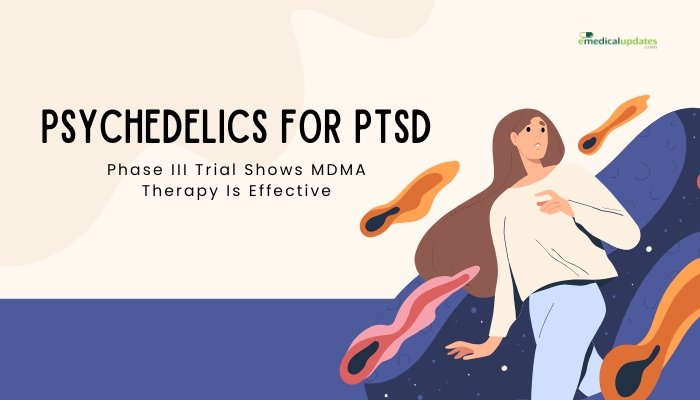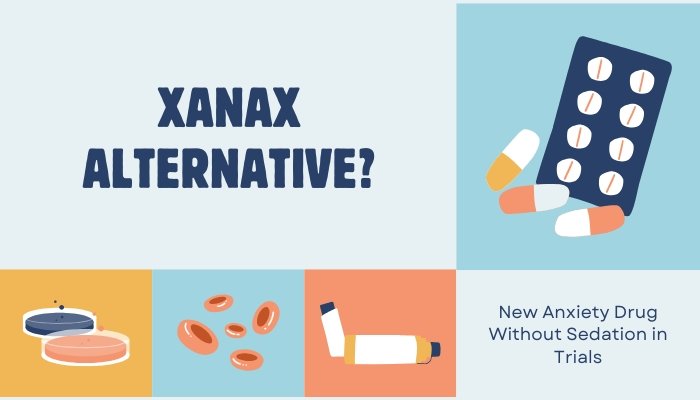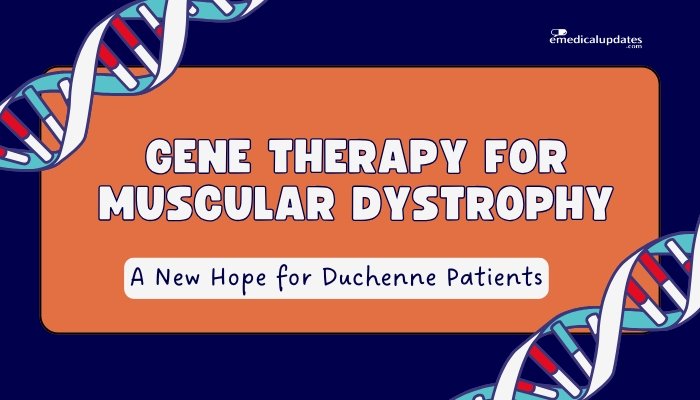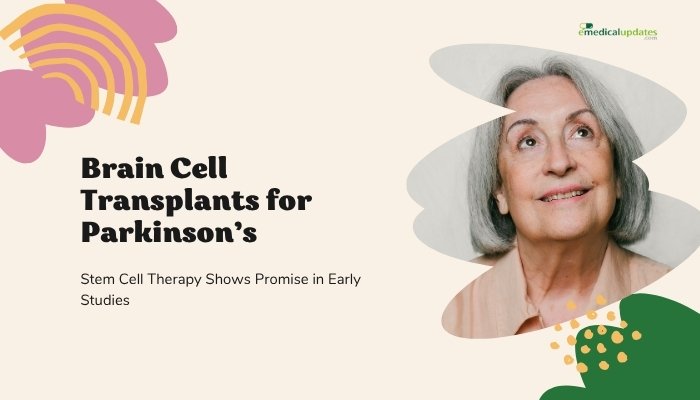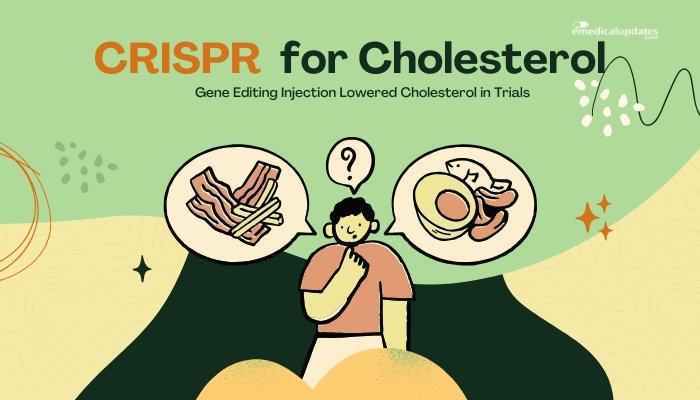Introduction
Post-traumatic stress disorder (PTSD) can be severely debilitating, leading to flashbacks, hypervigilance, and difficulty in daily functioning. Despite various treatments—including psychotherapy and conventional medications—many patients still struggle to manage their symptoms.
In a groundbreaking development, MDMA-assisted psychotherapy (MDMA-AP) has demonstrated promise in significantly reducing PTSD severity. Recently, a Phase III clinical trial yielded impressive results, fueling optimism that MDMA (3,4-Methylenedioxymethamphetamine) could soon become an approved tool in mental health care.
In this article, we examine how MDMA therapy works, the significance of the Phase III findings, and how this novel approach might reshape the future of PTSD treatment.
Understanding MDMA and Its Therapeutic Rationale
MDMA’s Mechanism of Action
MDMA, sometimes known as “ecstasy” in recreational contexts, primarily affects neurotransmitters such as serotonin, dopamine, and norepinephrine. In a controlled therapeutic setting, it can:
- Enhance Empathy and Trust: Patients often experience heightened emotional openness, facilitating exploration of traumatic memories.
- Reduce Fear Response: MDMA appears to dampen the amygdala’s fear circuits, making it easier to process difficult emotions without overwhelming anxiety.
- Increase Neuroplasticity: Animal and emerging human data suggest possible transient boosts in neuronal connectivity, potentially aiding cognitive restructuring during therapy.
Previous Treatment Gaps
While selective serotonin reuptake inhibitors (SSRIs) or trauma-focused therapies like Prolonged Exposure or EMDR benefit some, many patients plateau or discontinue due to side effects or lack of progress. The novel combination of MDMA and guided psychotherapy aims to unlock deeper emotional processing, especially for complex trauma that resists standard methods.
The Landmark Phase III Trial
Study Design
A large, multi-site Phase III clinical trial recruited participants with chronic, treatment-resistant PTSD. Volunteers typically had PTSD for several years, with numerous prior therapies. Researchers divided them into:
- Active Treatment Group: Received two to three sessions of MDMA-assisted psychotherapy plus talk therapy in a controlled setting.
- Placebo/Control Group: Received the same therapy structure without active MDMA or a very low dose incapable of producing full effects.
Key Results
- Symptom Reduction: On standardized PTSD scales (e.g., CAPS-5), MDMA therapy participants often showed substantial symptom improvement. Many no longer met PTSD diagnostic criteria post-treatment.
- Durable Effects: Follow-up data over months suggested sustained benefit, with fewer relapses compared to the control group.
- Safety Profile: Monitored in a clinical environment, MDMA was generally well-tolerated. Common adverse events (e.g., increased heart rate, mild anxiety) typically resolved quickly.
Significance
This Phase III data not only affirms MDMA’s efficacy for severe PTSD but also underscores potential for regulatory approval. Should final reviews confirm these findings, MDMA therapy might soon transition from “experimental” to “standard” for carefully selected patients within specialized protocols.
Therapeutic Process and Setting
Structure of Sessions
MDMA-assisted sessions differ from standard talk therapy. Typically:
- Preparation Phase: Several non-drug sessions to establish trust, review trauma history, and set therapeutic goals.
- MDMA Session: Under clinical supervision, the patient ingests MDMA. Therapists guide exploration of traumatic memories, ensuring emotional safety. The session can last up to eight hours.
- Integration: Follow-up sessions help patients consolidate insights, manage residual emotional processing, and plan next steps.
Why the Controlled Environment Matters
MDMA can induce vulnerability, euphoria, or vivid recollections. A professional setting ensures:
- Safety: Blood pressure and pulse monitoring, immediate intervention if needed.
- Therapeutic Focus: Skilled therapists facilitate deeper processing, preventing distraction or distress.
- Ethical Oversight: Protocols uphold patient well-being, consistent with research standards.
Potential Benefits and Considerations
Advantages Over Conventional Therapies
- Rapid Symptom Relief: Some participants see significant shifts after just two or three MDMA-facilitated sessions, versus prolonged talk therapy alone.
- Reduced Avoidance: MDMA’s anxiolytic properties help patients engage with traumatic content without overwhelming fear, potentially leading to deeper healing.
- Fewer Chronic Medications: Patients may lessen reliance on daily antidepressants or anxiolytics, though further study is needed to confirm long-term medication changes.
Risks and Limitations
- Cardiovascular Stress: Elevated heart rate and blood pressure may pose issues for individuals with heart disease. Thorough medical screening is vital.
- Potential for Misuse: Without professional boundaries, MDMA can be abused. Controlled distribution and therapy context are essential.
- Limited Access and Cost: Trained therapists, specialized clinics, and extended session times could restrict initial availability or make treatment expensive.
Future Directions
Regulatory Pathways
With strong Phase III outcomes, the FDA and other global authorities may grant approval or conditional use for MDMA in PTSD therapy. MAPS (Multidisciplinary Association for Psychedelic Studies) and other organizations drive these approvals, ensuring rigorous follow-up and post-marketing surveillance.
Additional Indications
Success in PTSD might spur exploration for other conditions, like treatment-resistant depression, eating disorders, or anxiety in terminal illness. Each potential use requires unique trial designs but shares the core principle of harnessing MDMA’s empathetic and fear-reducing properties for therapeutic gains.
Integration with Other Psychedelics
As psychedelics like psilocybin and LSD also show promise in mental health, clinics may eventually offer multi-modality approaches. The synergy among different psychoactive therapies remains an area of active research.
Frequently Asked Questions
- How soon could MDMA therapy for PTSD become widely available?
- Depending on final regulatory reviews and subsequent commercial rollout, experts predict it could be available in certain clinics within a year or two in some countries.
- Is MDMA therapy safe?
- When administered under strict protocols, it has been generally safe. Key side effects (e.g., elevated vitals, mild psychological stress) are mitigated by professional supervision.
- Will I still need my current medications or therapy?
- Possibly, yes. MDMA sessions are typically an adjunct to standard psychotherapeutic frameworks. Some patients taper or adapt medications, but each case differs.
- Can I do MDMA therapy at home or recreationally?
- No. These clinical trials occur in supervised, legal contexts with trained professionals. Recreational use lacks medical oversight and can be dangerous.
- Is MDMA therapy effective for all PTSD patients?
- Not all. Some respond more robustly than others. Suitability depends on factors like overall mental health, physical health, and readiness to engage in intense trauma processing.
Conclusion
MDMA’s success in Phase III trials for PTSD marks a leap forward in trauma therapy, offering remarkable improvements in symptom severity and quality of life for some patients with chronic, treatment-resistant conditions. By combining the chemical’s empathogenic properties with targeted psychotherapeutic techniques, this approach aims to resolve trauma more effectively than traditional interventions alone.
Still, challenges—like ensuring rigorous training for providers, controlling costs, and final regulatory approvals—remain before mainstream adoption. If realized, MDMA-assisted therapy may not only transform PTSD treatment but also open doors for new psychoactive-based methods to tackle depression, anxiety, and other deeply rooted mental health conditions.
References
-
- MAPS Press Releases (2023). “MDMA-Assisted Therapy for PTSD: Phase III Trial Results.”
-
- Mithoefer MC, et al. (2018). “3,4-Methylenedioxymethamphetamine (MDMA)-Assisted Psychotherapy in Treatment-Resistant PTSD.” Lancet Psychiatry.
-
- Phelps J, et al. (2020). “Emerging evidence for MDMA therapy in psychiatry.” JAMA Psychiatry.
-
- Doblin R, et al. (2021). “Safety and efficacy of MDMA-assisted therapy in clinical trials.” J Psychopharmacol.

